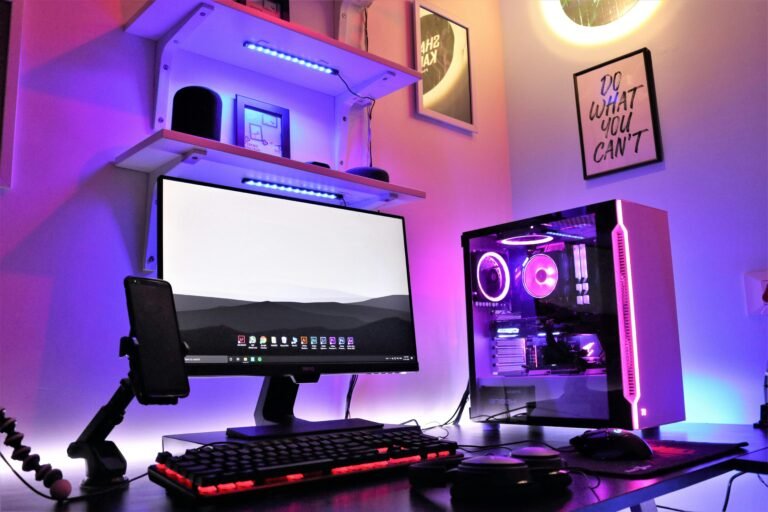I love my mini PC, but I still want to buy a tower PC. Here’s why
Image: Pexels: Sharad Kachhi
Mini PCs are all the rage right now and it’s easy to see why. It’s true that they offer a convenient space-saving option while offering performance that is quite impressive for their size. Heck, I switched to a mini PC myself. But as good as mini PCs are there are still a bunch of reasons why I prefer a tower PC. Here, I’ve listed a few below.
Performance is better in a tower
It’s a shame, but 3D rendering is generally going to be worse in a mini PC than a tower PC. Dedicated graphics cards by AMD and Nvidia are so large these days that while some of them might fit into compact towers, they’re almost always going to be too big for mini PCs. Many mini PCs rely on the laptop equivalents of GPUs, which aren’t as powerful as their desktop counterparts. Or worse still, they rely on integrated graphics, which is only really suitable for productivity and the lightest of gaming.
If your mini PC has a Thunderbolt port you may be able to skirt the issue and hook up a dedicated GPU in an eGPU enclosure to get a tower-sized graphics card working. The problem, though, is that the extra cost and footprint mean you probably should have bought a tower PC in the first place.
A tower offers more options to upgrade
To fit everything into such a small form-factor, mini PCs use laptop-style integration of their components. That unfortunately means some parts come soldered into place. That also means you’re not going to be able to upgrade all the parts.
Of course, in light of that, when you’re shopping you have to buy a model that has the specs you need and be prepared for them to last until you get a new unit.
That’s not the case with all mini PCs, of course — some are more upgradable than others, so it’s worth doing your research before you buy. But in the ones you can upgrade, it’s usually just the RAM and storage that’s upgradable. That’s compared to a tower PC, where you can upgrade the RAM, storage, CPU, motherboard, GPU, and power supply — basically every component.
Pexels: Anete Lusina
Increased size comes with thermal benefits
One factor that many people overlook with mini PCs is heat. Running at full performance, modern GPUs get very hot and mini PCs don’t have any way of dissipating that heat apart from their tiny fans and optimized airflow. Because of that, there’s a cap on how fast any mini PC’s GPU can run without creating problems. On the other hand, most tower PCs have much more space to optimize their airflow and usually incorporate advanced cooling apparatus.
Furthermore, because of the upgradability, you have the option of upgrading the cooling apparatus even more, should you wish to. That opens up the opportunity for a lot more performance in tower PCs compared to mini PCs.
The performance gains make the lack of portability worth it
While many people buy a mini PC for more desk space, it’s hypothetically possible to use one as a mobile device. But that’s not as easy as it sounds. Everywhere you go, you’re going to need an external display. Also, you’re going to need a mouse, keyboard, and power supply. That’s a lot less convenient than using a laptop, and yet a mini PC is unlikely to offer you any kind of substantial performance gain over a laptop for going to all that trouble.
Similarly, a tower PC isn’t very portable, but it’s not trying to be anything that it isn’t — it’s not a laptop, nor does it offer the same kind of convenience, but it does offer significant performance gains over a laptop, so its lack of portability is entirely worth it.
I/O options are better
Even though mini PCs are offering more ports these days, tower PCs still have their measure in sheer number of ports. This has implications for the number of peripherals I can use with my PC at any one time.
For example, while my mini PC might have ports enough for my keyboard, mouse, and an external drive, my tower PC can accommodate those devices plus my headset, a USB flash drive, and my smartphone all at the same time. That saves a lot of irritating plugging and unplugging in of devices.
Related content
Author: Dominic Bayley, Australian Editor, PCWorld
Based in Australia, Dominic Bayley is a hardcore tech enthusiast. His PCWorld focus is on PC gaming hardware: laptops, mice, headsets and keyboards.

